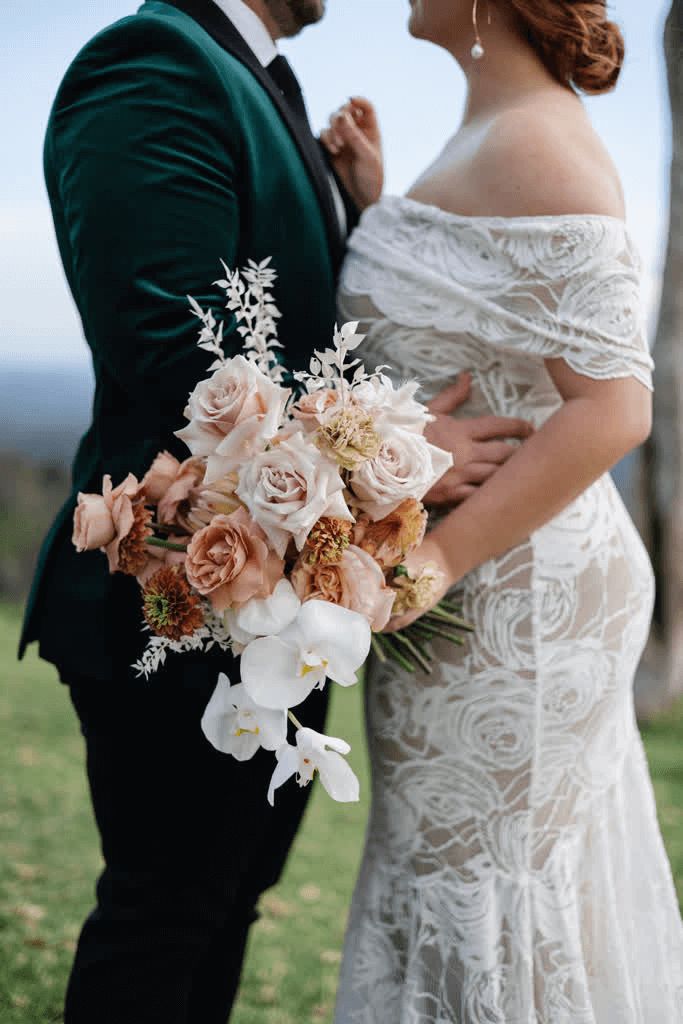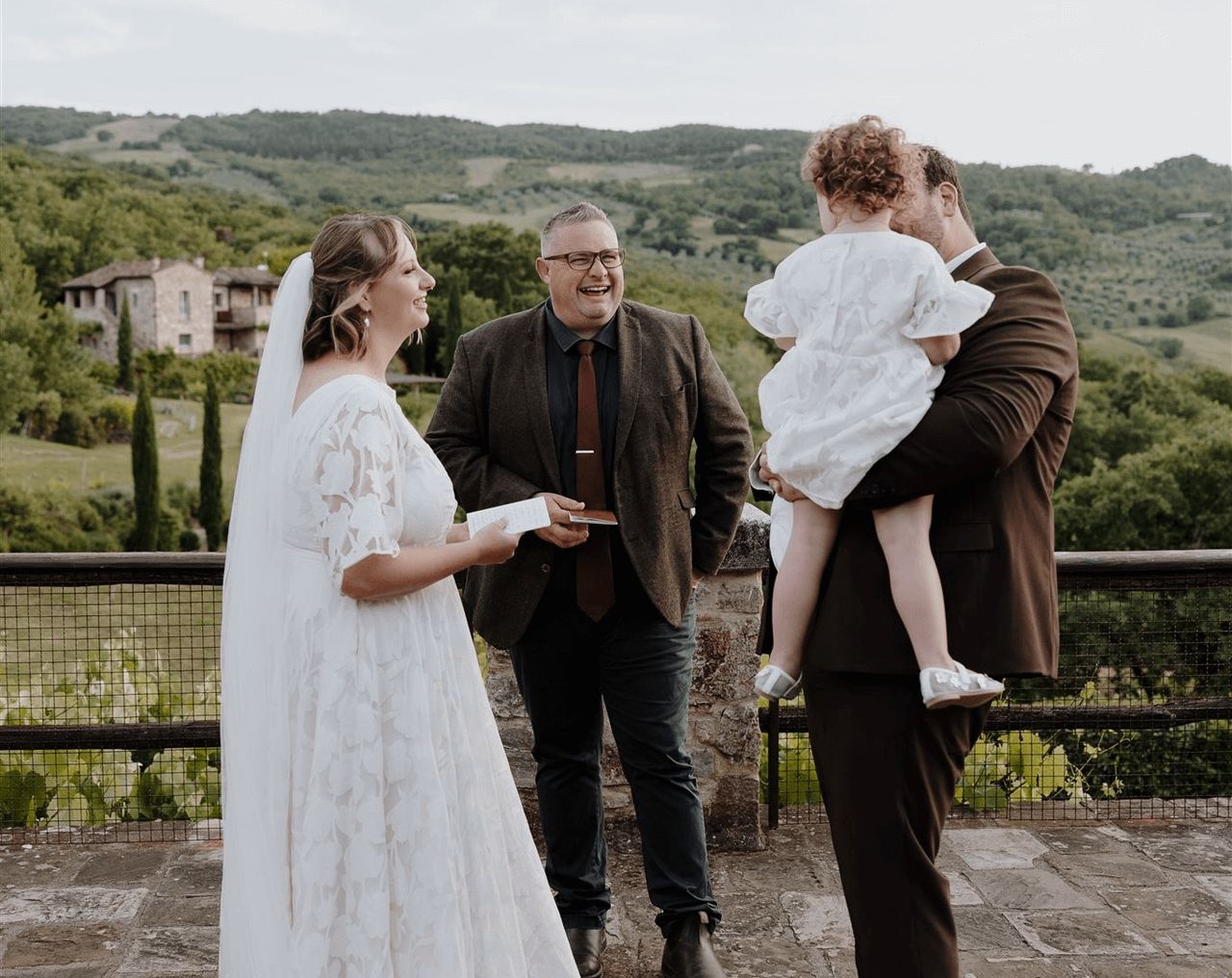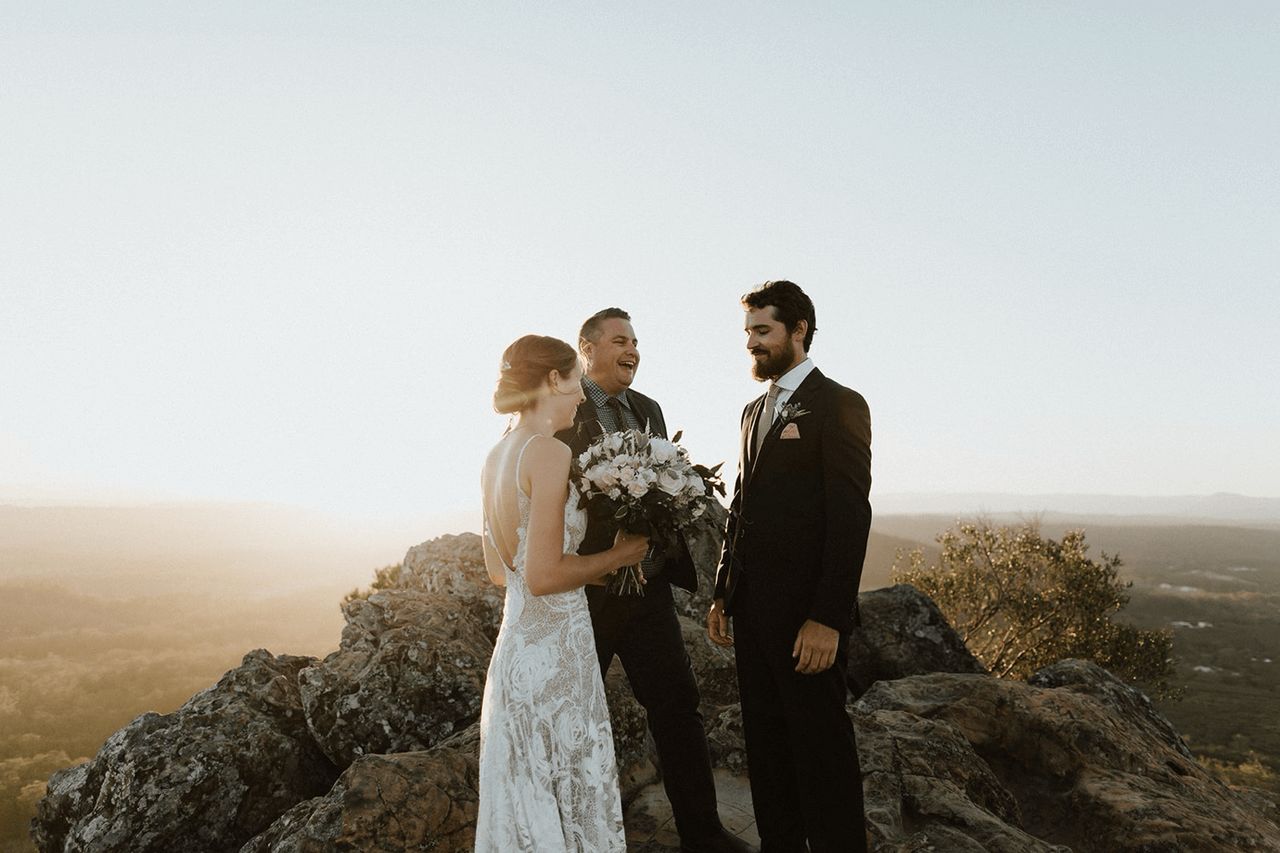· Wedding industry · 5 min read
The Illusion of "Best" in the Wedding Industry
Wedding industry awards claim to crown the "best" celebrant, so let's explore why excellence in weddings can't be objectively measured.

I’ve been thinking about awards in the wedding industry lately. You know the ones—those shiny plaques and digital badges proclaiming someone the “Best Celebrant” or “Top Photographer” of the year. They’re everywhere, proudly displayed on websites and social media profiles.
But here’s the thing that’s been nagging at me: what does “best” even mean when it comes to something as deeply personal as a wedding?
Fallacy of Objective Excellence in Subjective Art
Unlike a 100-metre sprint where the winner is objectively determined by who crosses the finish line first, wedding services exist in a realm of subjectivity and emotional connection. There’s no stopwatch for how quickly I make a couple feel comfortable, no measuring tape for the depth of emotion in a ceremony.
Malcolm Gladwell often references a psychological phenomenon called the “peak-end rule”—originally proposed by psychologist Daniel Kahneman and his colleague Barbara Fredrickson. This principle suggests that people judge an experience primarily based on how they felt at its peak moment and its end, rather than based on the average of every moment of the experience.
Think about what this means for weddings. A celebrant might create the most heartfelt, personalised ceremony imaginable, but if the reception DJ later plays “Gangnam Style” during the first dance by mistake, or if it pours rain during photo time, those peak-end moments might shape the entire memory of the day.
Dr. Elizabeth Dunn, a happiness researcher at the University of British Columbia, explains:
Our memories are not like videotapes that record every moment of an experience. Instead, we create memories based on a few critical moments.
The Chemistry Factor
When I meet with couples, there’s an intangible chemistry that either exists or doesn’t. Some couples walk into my office and within minutes, we’re finishing each other’s sentences and laughing like old friends. Others might find my style too relaxed or not traditional enough for their vision.
Does that make me a better or worse celebrant? Of course not. It simply means I was the right fit for some and not for others.
As wedding photographer and industry thought leader Jasmine Star puts it:
The best vendor for a wedding isn’t the one with the most awards, it’s the one who gets the couple on a soul level.
The Contextual Nature of Excellence
Every wedding is its own ecosystem of personalities, relationships, cultures, and emotions. A celebrant who masterfully navigates family tension at one wedding might struggle with the rapid-fire banter expected at another.
Seth Godin, marketing philosopher and author, talks about this in his blog: “The mistake is believing that there’s one ‘best’ for everyone… Instead, there’s only the best for a particular situation, a particular need, a particular client.”
I’ve conducted ceremonies in backyards with 15 guests and in luxury venues with 300 attendees. I’ve married couples who wanted religious elements woven throughout and others who preferred references to Star Wars instead of scripture. Each of these scenarios required different skills, different energy, different versions of me.
The Award Industry Complex
Let’s talk about how these awards actually work. Many require nominations or applications with fees attached. Some are voted on by the public (turning them into popularity contests rather than actual measures of quality), while others are judged by panels with varying degrees of industry knowledge.
Abby Larson, founder of Style Me Pretty, writes:
The wedding industry has created a self-sustaining ecosystem of validation where vendors essentially reward each other for being part of the same network.
I’ve seen talented newcomers shut out of these systems simply because they haven’t yet built the industry connections or social media following to get nominated, despite doing exceptional work.
What Really Matters
If not awards, then what should couples look for when choosing wedding vendors? I’d suggest three things:
Authentic connection: Do you genuinely enjoy talking with this person? Do they understand and respect your vision?
Consistent quality: Look beyond the highlight reel. Ask to see full galleries from photographers, read unedited ceremony scripts from celebrants, listen to complete sets from musicians.
Values alignment: The vendors who will serve you best are those whose core values match yours, whether that’s creativity, traditionalism, inclusivity, luxury, or simplicity.
As celebrant and author Alicia Ostarello writes in her book “Sacred Sendoffs”: “The right celebrant isn’t the one with the most accolades, but the one who makes you feel seen and understood in a way that will translate to your community on your wedding day.”
What This Means For Us All
I’m not suggesting that all wedding awards are meaningless or that accomplished professionals shouldn’t be recognised. Rather, I’m advocating for a more nuanced understanding of excellence in an inherently subjective field.
For couples: Trust your instincts when meeting vendors. The rapport you feel is far more meaningful than any badge on their website.
For vendors: Let’s focus on being the best for our specific couples rather than the best in some arbitrary, universal sense.
For award organisations: Consider creating categories that reflect the diverse needs of couples rather than suggesting there can be a single “best” in any category. Maybe it’s a grading system? I’m still sad that Jennfer’s Wedding & Events of Australia system of awarding levels of acclaim to wedding vendors didn’t survive as a business system. She would award people a level, like I think I attained Platinum or Diamond or something like that and it meant that I was of a certain standard. And many, hopefully all, would reach such heights as we worked hard to reach set standards.
At the end of the day, I’d rather be the right celebrant for 50 couples than the “best” celebrant who wasn’t quite right for anyone. Because when I stand at the top of the aisle, watching two people commit their lives to one another, surrounded by the people they love most—that moment isn’t about me or any award I might have. It’s about creating a ceremony that reflects exactly who they are and what they value.
And there’s simply no measuring stick for that.



